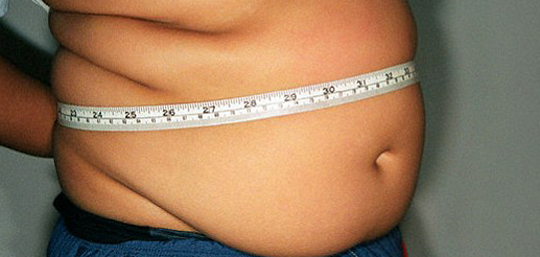New Delhi, Nov 26: After the United States of America, the epidemic of childhood obesity is gripping India. According to an international journal, by 2025, India will have over 17 million obese children and stand as second highest country in the world with obese children as per Pediatric Obesity.
 The rising prevalence of obesity in children is also bringing with it countless other adverse health effects, which make this condition a serious public health concern.
The rising prevalence of obesity in children is also bringing with it countless other adverse health effects, which make this condition a serious public health concern.
According to Satish Kannan, Co-founder and CEO of DocsApp, Obese children are at a greater risk of acquiring diabetes, high blood pressure, high cholesterol, cardiovascular diseases, bone and joint problems, sleep apnea, and social and psychological problems such as stigmatization and poor self-image.
Parents can be attributed to some degree for this problem as they often neglect the unhealthy dietary habits and patterns followed by these children. Popular culture that introduces them to junk food, snacks, colas etc and markets these items in the most attractive of ways adds to the issue.
Childhood obesity is a complex health issue which is not just influenced by unhealthy dietary habits, but also by the lifestyle and behavioral choices made by parents and children alike.
Children nowadays prefer to stay indoors than playing outside and are more exposed to screens like TV, tablets and mobile screens like never before. Meanwhile, there are parents who pressurise their kids to focus more on academics with little or no motivation to indulge in any outdoor games or sports. This lack of physical activity, which is a key determinant of energy expenditure and a fundamental part of energy balance and weight control, triggers obesity and chronic health conditions in them, said Kannan.
Genetic conditions are yet another factor that only increases the chances of obesity in children, which means children with overweight parents can also inherit the problem.
However, genetics alone cannot cause obesity. They merely increase one's propensity to put on weight easily. Ultimately, it's only the children who eat more calories than they need for their growth and energy who become obese.
No matter how much parents are to be blamed, the good news is that only they have the potential to influence their child's lifestyle and weight. For them, it can be difficult sometimes to figure out whether their child is overweight because a child may not look particularly heavy to be overweight.
Moreover, with a growing number of children becoming heavier at a younger age, they become used to seeing bigger children.
In such situations, determine the body fat directly is difficult and the diagnosis can be done through BMI rate. Children with a BMI equal to or exceeding the age-gender can be called obese.
Parents can do a lot to help their child maintain a healthy weight. To begin with, they can simply take charge as their role models by inculcating good habits in their children and encouraging them to be active and eat well by doing so themselves.
Parents must start a ritual of going for walks or cycling every day with their kids instead of watching TV or surfing the internet. This will not only make them realize that being active can be fun, it will be a great way for the entire family to spend time together.
Children crave for attention and care and those who are deprived of it, have a higher risk of obesity. So instead of using food as a comfort measure, parents must help them develop healthy eating habits by initiating ways to make their favorite dishes healthier, and reduce calorie-rich temptations by letting them enjoy those goodies as well once in a while as a treat.
Parents should also avoid serving their children oversized portions and start with small servings. They must also be encouraged to eat slowly in their set mealtimes. The mealtimes can be further utilised as an opportunity to catch up on their day to day activities.
Both the parents and children must make it a custom to eat healthy and aim for five or more portions of fruit and vegetables every day in the form of juices, smoothies, beans, and pulses, to ramp up their fiber, vitamins and minerals intake.
The idea is to get a maximum number of calories from healthier and nutrient-rich foods like fruit and vegetables, bread, potatoes, fish, chicken, rice and whole grains instead of sugary or high-fat foods like sweets, cakes, biscuits, sugary cereals, and sugar-sweetened fizzy drinks.
Children are the future pillars of a nation and their health and fitness are crucial for the overall growth and development of the country.
So, it becomes not just the responsibility of the parents, but the entire community around them including schools, child care settings and medical care providers, government agencies to be equally concerned about childhood obesity and take meaningful steps to nip the problem in the bud.






Comments
Add new comment